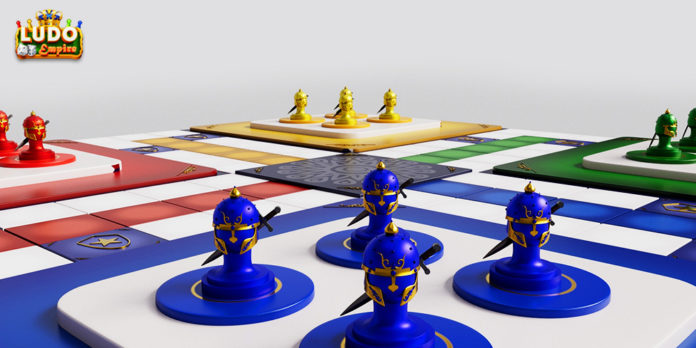Ludo, a classic board game that has stood the test of time, is not just about rolling dice and moving pieces around the board. Beneath its simple exterior lies a complex world where strategy, luck, and yes, psychology, intertwine to determine who emerges victorious. While it’s easy to dismiss Ludo as a mere game of chance, a deeper dive reveals that understanding and leveraging psychology can significantly influence your chances of winning. In this article, we’ll explore the fascinating ways psychology comes into play during Ludo matches and how you can use this knowledge to roll your way to victory.
The Power of Perception
In Ludo, as in life, perception is everything. The psychology of perception plays a crucial role from the moment you set your eyes on the board. The arrangement of colors, the position of your opponent’s pieces, and the proximity of your own tokens can all evoke different emotions and strategies. A well-placed piece might make you feel secure while seeing an opponent’s piece near your home area might trigger a sense of vulnerability.
These perceptions can influence your decision-making throughout the game. Being aware of these psychological triggers can help you manipulate your opponents’ moves and reactions. By strategically placing your pieces and creating perceptual illusions, you can lead your opponents astray and gain a significant advantage.
Embracing Emotional Intelligence
Emotions can run high during a game of Ludo. The elation of a lucky roll, the frustration of getting sent back to the starting point, or the satisfaction of sending an opponent’s piece back – all of these emotional experiences are part of the Ludo journey. Successful Ludo players understand the importance of emotional intelligence – the ability to recognize, understand, and manage emotions, both their own and those of their opponents.
By paying attention to the emotional cues of your opponents, you can predict their moves and reactions. If an opponent is visibly frustrated, they might take riskier moves or make mistakes. On the other hand, someone riding high on a lucky streak might become overconfident, leading to their downfall. By keeping your emotions in check and reading your opponents’ emotional states, you can adapt your strategy and capitalize on their vulnerabilities.
The Mind Game of Bluffing
One of the most intriguing psychological aspects of Ludo is the element of bluffing. Bluffing is the art of conveying false information to manipulate your opponents’ decisions. In Ludo, this can involve faking disappointment after a roll, pretending you’re going for one piece while secretly targeting another, or even deliberately hesitating before moving a piece to confuse your opponents.
Bluffing taps into the psychology of uncertainty and doubt. When you plant a seed of doubt in your opponents’ minds, they might second-guess their own moves and play more conservatively, allowing you to seize control of the board. However, bluffing should be used judiciously – overdoing it might make you seem unreliable, leading to the opposite of the intended effect.
Mastering Patience and Impulsivity
Ludo often presents players with a choice between patience and impulsivity. The psychology of decision-making in this context is intriguing. A series of unfortunate rolls might tempt you to take reckless risks in a bid to catch up, driven by the impulsive desire to turn the tide quickly. Conversely, waiting patiently for the perfect roll might lead to missed opportunities.
Understanding your own decision-making tendencies and those of your opponents can guide you in choosing the best course of action. Learning to balance patience and impulsivity, and recognizing the moments when each strategy is appropriate, can greatly impact your chances of success.
The importance of maintaining the balance between patience and impulsivity shines through the most in the professional Ludo players of real money games. The possibility of winning rewards and prizes in the play Ludo and earn money games drives the players’ gaming mindset towards attaining stable tactics and techniques.
Conclusion
Ludo is far more than a roll of the dice; it’s a psychological battleground where perception, emotion, strategy, and intuition converge. By embracing the psychological dimensions of the game, you can elevate your Ludo skills and increase your odds of victory. Remember, while luck plays its part, it’s the understanding and manipulation of psychology that can truly roll you to victory. So, the next time you gather around the Ludo board with friends and family or play the ludo online money games, keep these psychological insights in mind and watch as your wins multiply – one strategic roll at a time.

